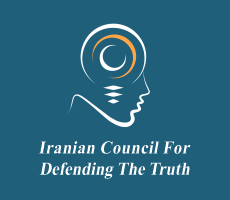In the two-party presidential system of the United States, elected officials tend to be affiliated with the Democratic or Republican Party due in large part to the principle and practice of winner-take-all. The chances of an independent candidate or one from a third party holding a major public office are slim to none. At the same time, movements within the Democratic or Republican Party, like the Tea Party or Freedom Caucus, can influence the party from within and push it further to the left or right. The two-party system has received criticism for reducing electoral competition, disregarding alternative viewpoints, diluting political debate, and increasing public apathy. The system has been praised for incentivizing both parties to remain in the center and appeal to the broadest constituency – a process that purportedly generates greater political stability and economic growth.
The role of the Electoral College in the presidential election is solely to elect the president and vice president based on an absolute majority of at least 270 out of 538 votes. Each state contains a certain number of electors who are legally supposed to vote or have pledged to vote for the presidential candidate who wins the popular vote or the plurality of the vote in the state. The electors cast their vote in their respective state capitals after the presidential election in December. Congress counts and tabulates the results of the vote in January before the president and vice president are inaugurated.
There is specific information on the number of Electoral votes in each state. This number is based on the population of each state as determined by the national census and is equivalent to the total membership of the state in the Senate and House of Representatives.
When it comes to American democracy, the influence of the Electoral College has its pros and cons. On the positive side and assuming the electors fulfill their legal obligations or pledges, the College ostensibly reinforces federalism by enabling smaller states to influence the outcome of the election, moderates the candidates and their parties by incentivizing them to attract rural voters and establish national coalitions, and reduces the probability of states having to recount the popular vote. On the negative side, the College grants disproportionate influence to so-called swing states and less populous states, and violates the principle of “one-person, one-vote” in direct democracies. In the 2000 and 2016 presidential election, the Republican candidate became president by winning the electoral vote but losing the popular vote.
However, the result of the presidential election can bring about a significant change in US foreign policy, especially toward Iran. When it comes to Iran, the two candidates possess two competing visions. On one side, Mr. Trump has undermined the JCPOA to renegotiate a so-called better deal or pursue regime change. On the other side, Mr. Biden has expressing a willingness to rejoin the JCPOA to promote nuclear non-proliferation and regional stability. That being said, and if elected president, Mr. Biden would have to overcome hawks and hardliners in Washington, as well as domestic interests and regional partners that oppose the nuclear deal and potential détente between the United States and Iran.
Regardless of who wins the US presidential election, the normalization process between Israel and the Arab States of the UAE and Bahrain will likely move forward because it is being consummated by them with US pressure and support. Irrespective of whether the timing of this process corresponds with the election, a Republican or Democratic president will likely continue backing a process that presumably formalizes and strengthens the security and economic interests and integration of several US partners, even if the process comes at the real and perceived expense of other states and quasi-state actors in the region.
The normalization process between Israel and the Arab states of the UAE and Bahrain may have been partially triggered by the perception and prospect of increased US disengagement from the region under Mr. Biden, if he were to win the election. While this argument may have some validity, Mr. Biden’s statements during his campaign and the background of his potential cabinet members signal that the security interests of Israel and Arab allies and partners would remain a foreign policy priority for his administration. If Mr. Biden were able to rejoin the JCPOA, the objective would likely be to recalibrate or rebalance US foreign policy by constructively engaging Iran and promoting regional stability while protecting the security interests of allies and partners.

